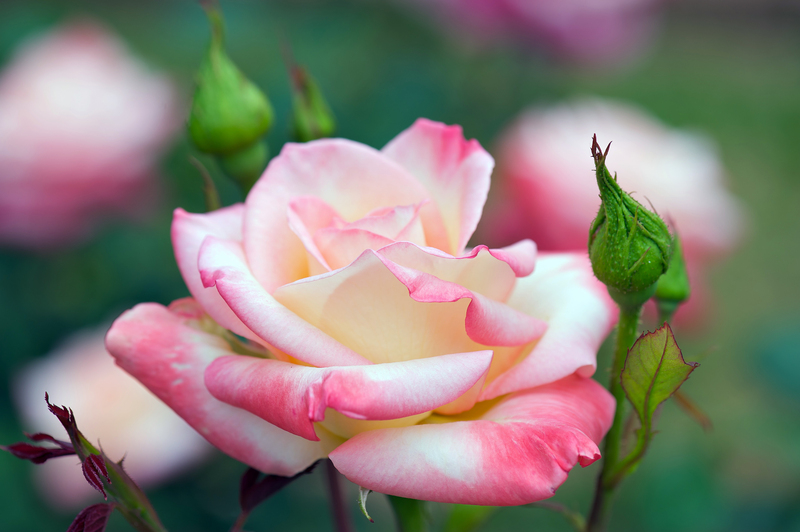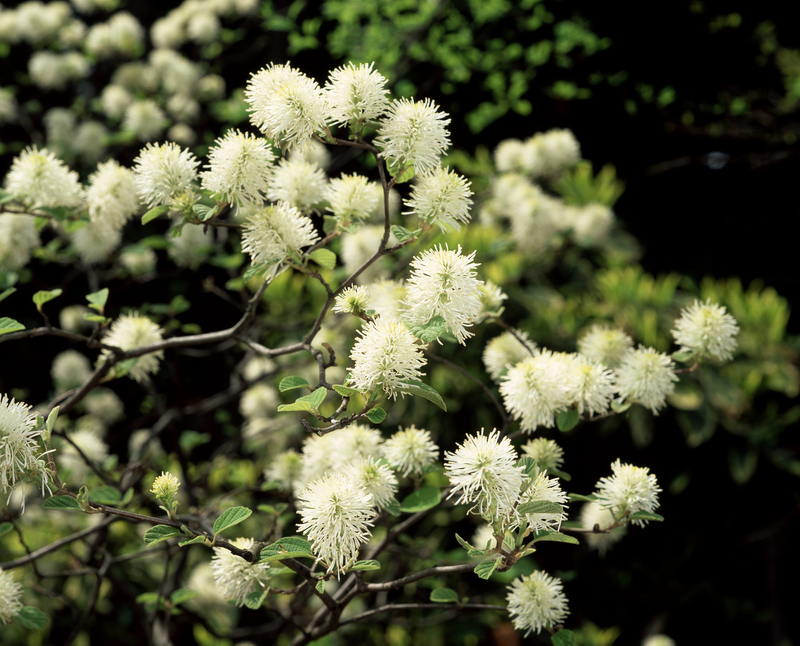Container Gardening: A Sustainable Choice
Posted on 28/05/2025
Container Gardening: A Sustainable Choice
Container gardening is rapidly gaining traction among urban dwellers, gardening enthusiasts, and sustainability advocates. As people search for greener living solutions, *container gardening* emerges as a top pick for those wishing to minimize their environmental footprint while cultivating fresh produce and vibrant flowers. In this comprehensive guide, we'll explore why container gardening is a sustainable choice and how it can transform your space and lifestyle for the better.

What is Container Gardening?
Container gardening involves growing plants exclusively in containers rather than planting them in the ground. These containers can range from traditional clay pots to innovative recycled items, such as old buckets, wooden crates, or even repurposed furniture. The practice allows for incredible flexibility and opens the door for gardening in places where traditional gardening might not be possible, like balconies, patios, rooftops, and small urban apartments.
Common Containers Used
- Terracotta pots
- Ceramic and plastic planters
- Wooden boxes and crates
- Old tires, barrels, or buckets
- Hanging baskets or vertical planters
Container gardens are not just about aesthetics--they are a sustainable gardening option with practical and ecological benefits.
Why Container Gardening is an Eco-Friendly Solution
With the world increasingly focused on sustainability, *container gardening* provides real-world benefits that align with eco-friendly lifestyles:
- Water conservation: Containers require less water than traditional beds, reducing waste and expense.
- Efficient use of space: Even small areas become mini-green oases through *container gardens*.
- Reduced use of harmful chemicals: Growing in containers allows for more control, meaning you can limit or eliminate the use of pesticides and herbicides.
- Repurposing materials: Using recycled containers keeps items out of landfills and extends their life cycle.
- Lower carbon footprint: Growing your own food in containers reduces the need for store-bought products that typically come with packaging and transportation emissions.
Container gardening as a sustainable practice encourages us to rethink waste, water usage, and our relationship with food production, making it an attractive option for environmentally conscious individuals.
The Advantages of Container Gardening
1. Accessibility and Flexibility
Not everyone has access to a large yard or community plot. Container gardens can thrive on balconies, windowsills, rooftops, or patios, making gardening accessible for apartment dwellers or those with limited space. *Flexibility* is another hallmark -- containers can be moved to catch the sun, avoid frost, or rearrange your decor as needed. This adaptability allows you to experiment with your layout and plant choices year-round.
2. Control Over Growing Conditions
Container gardeners have more control over the quality of soil, moisture, and microclimate. Unlike traditional in-ground gardening where you must work with what nature gives you, *container gardening* lets you curate the best environment for each plant's needs. This often results in healthier plants, better yields, and reduced pest problems.
3. Innovative Design Possibilities
The visual appeal of container gardening shouldn't be underestimated--think vertical gardens, window boxes, and artistic arrangements that become focal points in any environment. By combining practical and ornamental plants, you can create a functional yet beautiful green space that expresses your style while promoting biodiversity.
4. Sustainable Resource Management
By focusing on resource-efficient gardening through containers, you're able to use less soil, manage nutrients more effectively, and cut down significantly on waste. When combined with sustainable practices such as rainwater harvesting and compost, the environmental benefits multiply.
Getting Started with Sustainable Container Gardening
Choosing the Right Containers
- Repurpose and recycle: Look for unused household items to turn into unique planters--this keeps materials out of landfills and gives a personal touch.
- Opt for natural materials: Choose unglazed clay, wooden, or biodegradable pots. These materials break down over time and are less resource-intensive to produce.
- Avoid plastic when possible: If you must use plastic, select UV-resistant and food-grade plastics, and try to extend their lifespan as much as possible.
Each container should have adequate drainage holes to prevent waterlogging and root rot.
Best Soil for Container Gardens
Soil is the backbone of any garden. For container gardening, use a high-quality potting mix designed for your chosen plants. Avoid using soil directly from the ground, as it can harbor pests and disease, and might not provide adequate drainage in a confined space. Incorporate organic compost and slow-release fertilizers to minimize the need for chemical inputs, further enhancing sustainability.
What Can You Grow in Containers?
- Vegetables: Tomatoes, peppers, lettuce, kale, radishes, and beans thrive in containers.
- Herbs: Basil, mint, parsley, rosemary, and thyme are perfect for small spaces.
- Flowers: Marigolds, pansies, petunias, and nasturtiums add color and attract pollinators.
- Fruits: Strawberries, dwarf citrus trees, and blueberries can all be grown in pots.
Consider native or drought-tolerant plant varieties for low-maintenance, eco-friendly container gardens.
Watering Tips for Sustainable Container Gardens
- Group containers: Placing pots close together creates a humid microclimate, reducing water loss.
- Mulching: Use organic mulch atop your soil to retain moisture and regulate temperature.
- Self-watering containers: Invest in or DIY containers with built-in reservoirs to optimize water use.
- Harvest rainwater: Capture and reuse rainwater for irrigation to conserve this precious resource.
Always water early or late in the day to minimize evaporation.
How Container Gardening Helps Reduce Waste
One of the key pillars of sustainability in gardening is waste reduction. Container gardening contributes to this in several meaningful ways:
- Reusing containers: Extend the life of everyday items by transforming them into planters.
- Reducing food waste: Grow what you eat, harvest as needed, and minimize spoilage.
- Composting: Use kitchen scraps to create nutrient-rich compost for your containers, closing the waste loop.
- Minimizing packaging: Growing your own produce cuts reliance on store-bought goods packaged in plastic and disposable materials.
*Container gardens* are perfectly suited for compost tea and vermicomposting, offering plants natural nutrients while repurposing organic waste.
Container Gardening and Urban Sustainability
Urban areas face unique challenges: lack of green space, air pollution, and the heat island effect. Container gardening presents innovative solutions for these concerns.
Improving Air Quality and Reducing Heat
Plants act as natural air filters, removing toxins and producing oxygen. Container gardens on rooftops, balconies, and terraces reduce building temperatures, provide shade, and ease the burden on air conditioning--all while making city living more pleasurable and healthy. Vertical container gardening solutions can transform bare walls into lush, cooling green spaces, amplifying their positive impact.
Enhancing Food Security
Rising food costs and supply chain disruptions highlight the importance of local food production. Growing food in containers enables people to supplement their diets with fresh vegetables and fruits, empowering self-sufficiency and reducing dependence on commercial agriculture.
Fostering Community Engagement
Many urban communities are embracing sustainable container gardening initiatives--shared rooftop gardens, educational workshops, and public container installations are springing up in cities worldwide. These projects bring people together, raise environmental awareness, and provide fresh harvests for all involved. Container gardens can even become pollinator havens, supporting local bees, butterflies, and birds.
Challenges and Solutions in Sustainable Container Gardening
Common Challenges
- Limited root space: Some plants struggle in confined containers. Choose plant varieties suited for containers or use larger pots for robust growth.
- Water management: Containers dry out quickly. Monitor moisture levels regularly and consider self-watering systems.
- Nutrient depletion: Regularly replenish soil nutrients with organic fertilizers or compost.
- Material waste: Avoid single-use plastics and seek durable, long-lasting containers.
Sustainable Solutions
- Rotate and refresh: Rotate crops and renew soil each season to maintain healthy plants and soil biology.
- Upcycle creatively: Collaborate with neighbors or community centers to collect and repurpose containers, sharing resources for larger impact.
- Native plants: Focus on plants adapted to your climate--they'll thrive with less intervention and support local wildlife.
With thoughtful planning, container gardening sustainability can be maximized, making it not only a green choice, but a rewarding and educational journey.

Tips for Maximizing Sustainablity in Your Container Garden
- Prefer organic: From seeds to soil amendments, seek out chemical-free products for a safer, greener garden.
- Encourage biodiversity: Mix flowering, edible, and insect-attracting plants for healthier, more resilient gardens.
- Use local materials: Source soil, compost, and containers from local suppliers to reduce transport emissions.
- Share and swap: Exchange seeds, cuttings, and even excess harvests with neighbors to build a connected, sustainable community.
Conclusion: Choose Container Gardening for a Greener Future
Container gardening represents a powerful step toward sustainable living. Whether you're curious about urban gardening or seeking ways to reduce your environmental impact, starting a sustainable container garden offers flexibility, reduces waste, saves resources, and can improve both your own well-being and that of the planet.
With a little creativity and a commitment to eco-friendly practices, container gardening can transform even the smallest space into a thriving sanctuary of green. Embrace this sustainable growing method and experience firsthand how easy, enjoyable, and impactful container gardening can be for you and the world around you.
Make the sustainable choice--start your container garden today!
Latest Posts
Sleek and Stylish: Hedge Trimming Techniques Reimagined
Gardening Hacks: Keep Your Plants Thriving in Winter
Cultivate Positivity: Gardening's Role in Climate Change
Set your garden up for success with these 9 essential beginner tips

